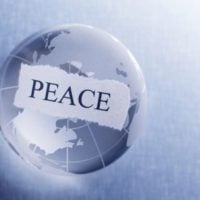Impact, the Canadian-based organization has announced its withdrawal from the Kimberley Process (KP), the regulatory mechanism that polices the sometimes controversial international diamonds business. It has been one of the most vocal of the advocates of “civil society” — the non-governmental organizations (NGO) that make up the tripartite structure of the world diamonds business alongside producing countries and big corporations.
The announcement was made in an event in Brisbane, Australia. This has shifted the balance of power in the global diamonds industry and could lead to a greater voice for the African nations at the center of the multi-billion dollar trade.
Impact, formerly known as Partnership Africa Canada (PAC), claimed that the regulatory system was ineffective in preventing “blood diamonds” — stones mined in conflict areas mainly in Africa — from entering the global chain. The outspoken Director of Research, Alan Martin, led the campaign to boycott the UAE’s chairmanship of KP in 2016, when the NGO argued that Dubai — the world’s third largest diamond trading center — was not qualified to lead the regulator. The Brisbane meeting also heard that Martin would not be involved in the KP process any more, and would be looking after other natural resources issues in Africa.
The World Diamond Council, which represented the industry at the Brisbane meeting said, “It was “saddened” by Impact’s departure, but there was audible relief, and some sense of triumph, in some parts of the industry that Impact and Martin would no longer be formally involved in KP.”
The Emirati businessman Ahmed Bin Sulayem, who was chairman of the KP in 2016 said, “Their withdrawal opens the door to a much needed transition. I think PAC (Impact) got so big that they simply closed down the space for all other actors within the civil society coalition. No one else had a voice. Stepping back could give us the opportunity to restore genuine African agency in civil society.”
Executive Chairman of the Dubai Multi-Commodities Center Bin Sulayem added, “There was so much power that PSC wielded, and we know that power corrupts and absolute power corrupts absolutely.”
In statements, its Executive Director Joanne Lebert said, “That the KP process, and in particular its scheme to verify diamonds as coming from non-conflict zones, had “lost its legitimacy,” and “did not provide the evidence of traceability to ensure a clean, conflict free and legal diamond supply chain. The Impact would continue working with some KP members and civil society organizations. A request to Impact from Arab News for further elaboration was not answered.
Criticism of Impact/PAC centered on their control of funding of African organizations, which in effect allowed them to decide which local NGOs were allowed to take part in the KP dialogue. Now, Bin Sulayem believes several African organizations are looking to enter the KP process as independent entities.
It is said there have been allegations of the “personalization” of animosities between Impact/PAC and Martin on the one hand and UAE diamond executives on the other. Therefore the ongoing confrontation distracted the KP from dealing with crucial questions in the international gems trade, at a time when it was battling to deal with financial pressures and commercial competition from synthetic diamonds.
Radical plans under the UAE chairmanship of KP were launched to develop a valuation process for rough diamonds as well as a system of independent funding for African NGOs and a permanent secretariat to look after their interests. All these initiatives were continued by the Australian chairmanship of 2017, which has now passed to the EU. The UAE will continue to be involved via the KP’s participation committee.
Founded in 2003, the KP has had a fractious relationship with civil society members. Global Witness, one of the main campaigning organizations, left as an official observer in 2011.








































